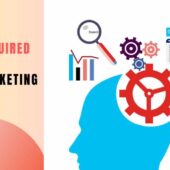“It takes 20 years to build a reputation and five minutes to ruin it. If you think about that, you’ll do things differently.” -Warren Buffett
Table of Contents
ToggleWhat is Branding?
Branding is the process of building a definite identity for a business in the minds of your target customers and the general population. Branding encompasses a firm’s name and logo, elements used to represent a business, mission, values, and tone of voice as a central theme.
Steps for successful Branding
Branding generally involves decisions on following three broad categories, they are brand strategy, brand identity, and brand marketing. These can be a bit overlapping but are critical to develop a powerful brand image in front of prospective customers. The broad categories are further subdivided and below are the distinguished steps that are required for successful branding.
- Target audience (ideal customer) identification
- Competitor research
- Brand’s purpose & positioning
- Brand personality and brand voice
- Brand story development
- Selection of brand name
- Brand slogan
- Brand look and logo design
- Brand integration into all aspect of business (live up to brand image)
- Continuous Promotions of brand
- Track performance and continuous improvements
- Re-brand if necessary
How to promote a brand online?
Online brand promotion or online branding involves a combination of strategies that leverage various online / digital channels to increase visibility, engagement, and finally conversions. Here’s a comprehensive approach to promote your brand online:
- Develop and be ready with Your Digital Assets
Customer Profiling: Research and define the persona of your ideal customer for the purpose of creating assets accordingly and later to reach them in the promotion phase.
Logo and Design: Ensure your logo, website, and all marketing materials reflect a cohesive and professional look.
Brand Voice and Messaging: Define a consistent tone and message that resonates with your target audience.
Professional Website: Build a professional website, make sure your website is easy to navigate, content rich, mobile-friendly, and fast-loading. Optimise your site for the purpose of ranking high in search engines and increase organic traffic.
Social Media Channels: Create social media accounts where your target customers visit regularly.
Content and Video Creation: Start planning and creating blog content. social media content and videos which will be used during the promotional phase.
Promotion of Digital Assets through various Digital Channels
- Search Engine Optimization (SEO)
SEO is essential to rank higher in search engines and get organic traffic
- Keyword Research: Identify relevant keywords your target niche is searching for and incorporate them into your content strategy.
- On-Page SEO: Optimise your website’s titles, meta descriptions, headings, and content in accordance with search engines.
- Backlink Building and Off-Page SEO: Acquire high-quality backlinks from reputable websites, local citations and social posts etc to improve your website’s authority to improve search ranking.
Get Trained in Advanced SEO Course Training to Become a SEO Expert
- Pay Per Click Advertising
To tap high intent and relevant search and other PPC platform’s traffic for the purpose of awareness, branding and conversions.
- Google Ads: Use high intent search traffic for related keywords.
- Social Media Ads: Run targeted ads on social platforms like Facebook, Instagram, LinkedIn, and Twitter.
- Retargeting: Use these ads to tap previous visitors of your website.
Learn PPC Course Training in 1 Month and Change Your Career
- Content Marketing
- Blogging: Regularly publish high-quality, relevant content that provides value to your audience.
- Video Content: Appealing videos for YouTube, Instagram, and other video platforms.
- Infographics and Visuals: Use visually engaging content to convey complex information quickly.
- Social Media Marketing
Use social media to engage and increase brand visibility and recognition.
Treat and engage your social media fans and so that they become loyal supporter of your brand
- Platform/s Selection: Identify which social media platforms your target niche uses the most and focus your efforts there.
- Consistency: Post regularly and engage with your audience by responding to comments and messages.
- Influencer Collaborations: Partner with influencers in your industry niche to reach a broader audience.
- Email Marketing
Convey a consistent brand identity through emails.
- Email List Building: Use lead magnets like eBooks, discounts, or exclusive content to gather emails.
- Personalization: Send targeted, personalised emails to nurture leads and convert them into customers.
- Public Relations (PR)
PR is an integral part in creating a brand’s unique identity and communicating that to its target audience.
- Press Releases: Press releases to announce new products, services, or company milestones.
- Media Outreach: Build relationships with journalists and bloggers in your niche to get featured in articles.
- Customer Reviews and Testimonials
Build credibility with reviews and testimonials.
- Encourage Reviews: Persuade customers to leave reviews on Google, Yelp, and industry specific websites.
- Testimonials: Feature customer’s positive feedback on website and social media.
- Analytics and Optimization
Measure performance, experiment and optimise with an objective of continuous improvement.
- Measure Performance: Use tools like Google Analytics and social media insights to monitor your marketing efforts.
- A/B Testing: Regularly test different strategies and optimise based on what works best.
Tools (that may be used during promotional phase to make the journey easy and effective)
You can consider using some of the suggested tools mentioned below which may be useful during promotion of your brand.
- SEO: Ahrefs, SEMrush, Moz
- Email Marketing: Mailchimp, Constant Contact, SendinBlue
- Social Media Management: Hootsuite, Buffer, Sprout Social
- Content Creation: Canva, Adobe Creative Suite, Grammarly
- Analytics: Google Analytics, HubSpot, Kissmetrics
Through combining above mentioned strategies and continuously monitoring and optimising your efforts, you can effectively promote your brand online and build a strong digital presence.
Online promotions are cost-effective as compared to other traditional modes of advertisements such as print media and TV. In addition, here we can easily track and measure the results and make necessary changes accordingly to improve the performance.
With the digital revolution in India and acceptance of digital marketing across industries, online branding presents a significant scope for companies to beat the competition and increase market share.
Refer our most read guide on PPC Tips For Ecommerce Business






